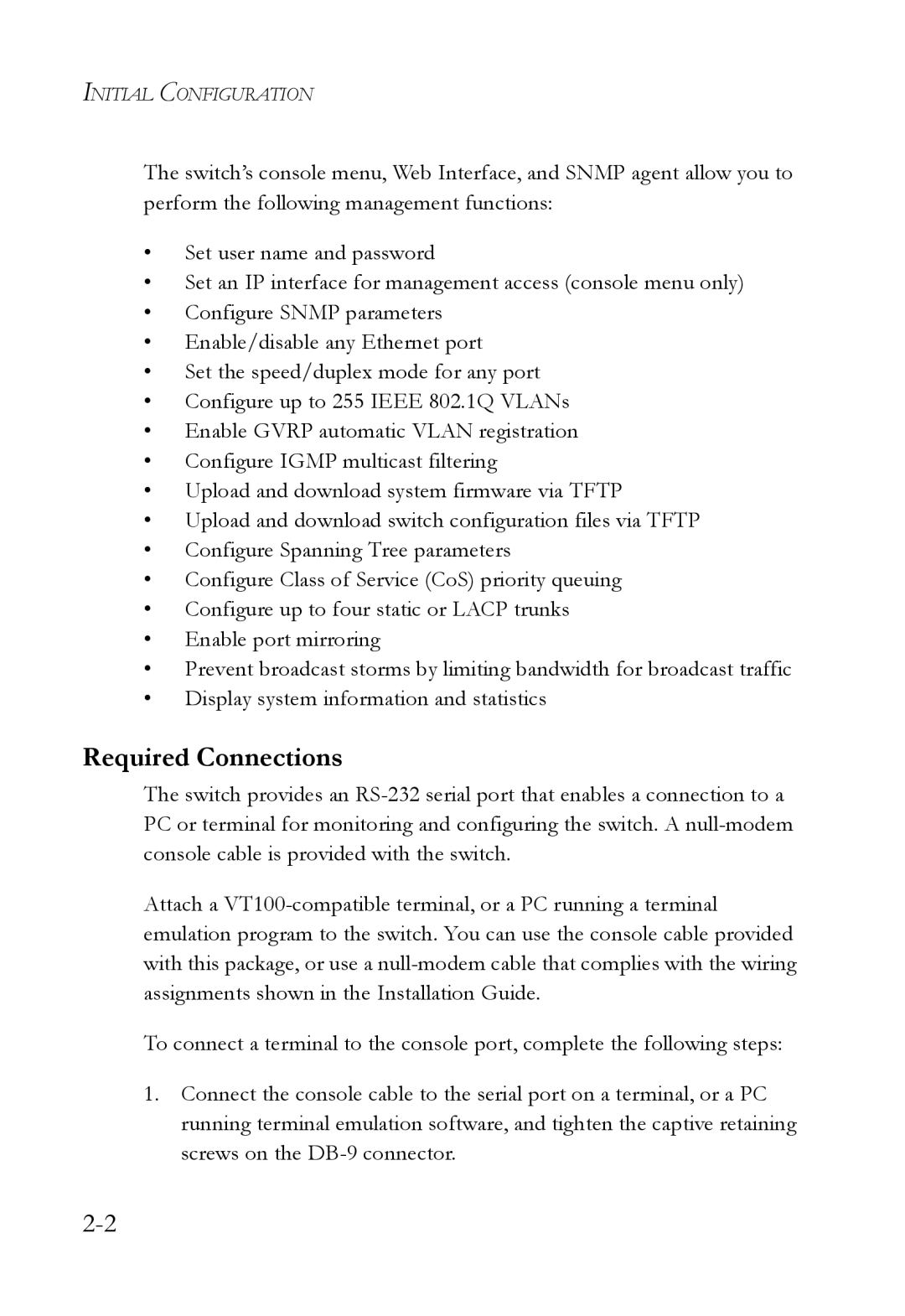INITIAL CONFIGURATION
The switch’s console menu, Web Interface, and SNMP agent allow you to perform the following management functions:
•Set user name and password
•Set an IP interface for management access (console menu only)
•Configure SNMP parameters
•Enable/disable any Ethernet port
•Set the speed/duplex mode for any port
•Configure up to 255 IEEE 802.1Q VLANs
•Enable GVRP automatic VLAN registration
•Configure IGMP multicast filtering
•Upload and download system firmware via TFTP
•Upload and download switch configuration files via TFTP
•Configure Spanning Tree parameters
•Configure Class of Service (CoS) priority queuing
•Configure up to four static or LACP trunks
•Enable port mirroring
•Prevent broadcast storms by limiting bandwidth for broadcast traffic
•Display system information and statistics
Required Connections
The switch provides an
Attach a
To connect a terminal to the console port, complete the following steps:
1.Connect the console cable to the serial port on a terminal, or a PC running terminal emulation software, and tighten the captive retaining screws on the
